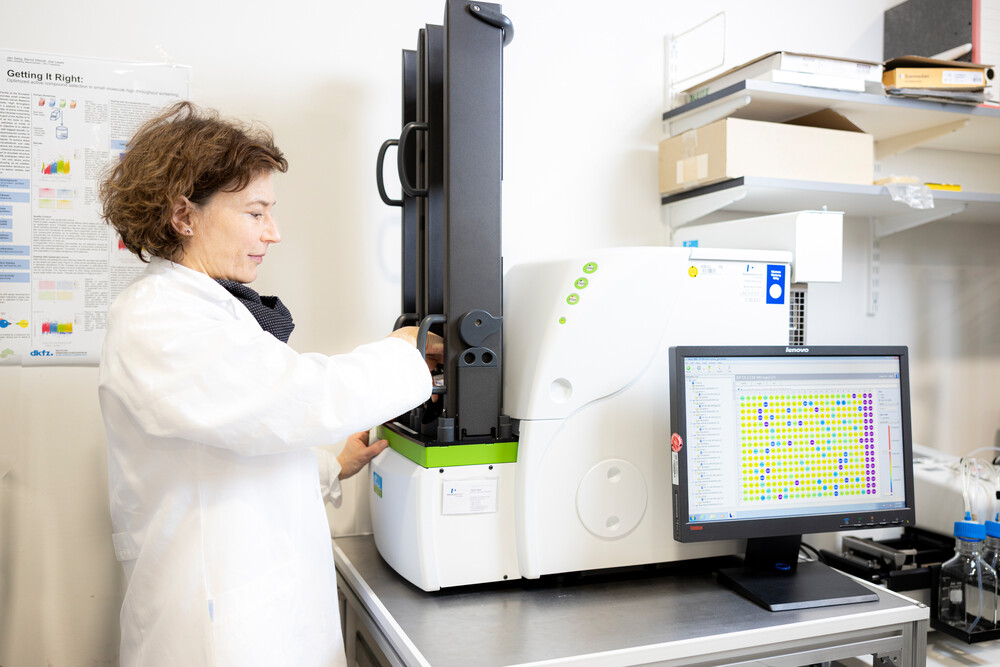Services provided
The facility is set up as a collaboration between EMBL and German Cancer Research Center (DKFZ) to provide the infrastructure and expertise to open up small molecule development to research groups at these institutions.
- Assay development and high-throughput screening
- Binding affinity studies for small molecules and antibodies using the Biacore surface plasmon resonance technology (SPR)
- Computational screening using ligand-based and structure-based design strategies
- With the help of EMBL’s Chemical Synthesis Core Facility hit compounds can be optimised towards high quality tool compounds
- Managing compound acquisition through our chemistry partners
- Support in generating structure-activity relationships
- Support in optimisation of tool compounds towards therapeutic use
